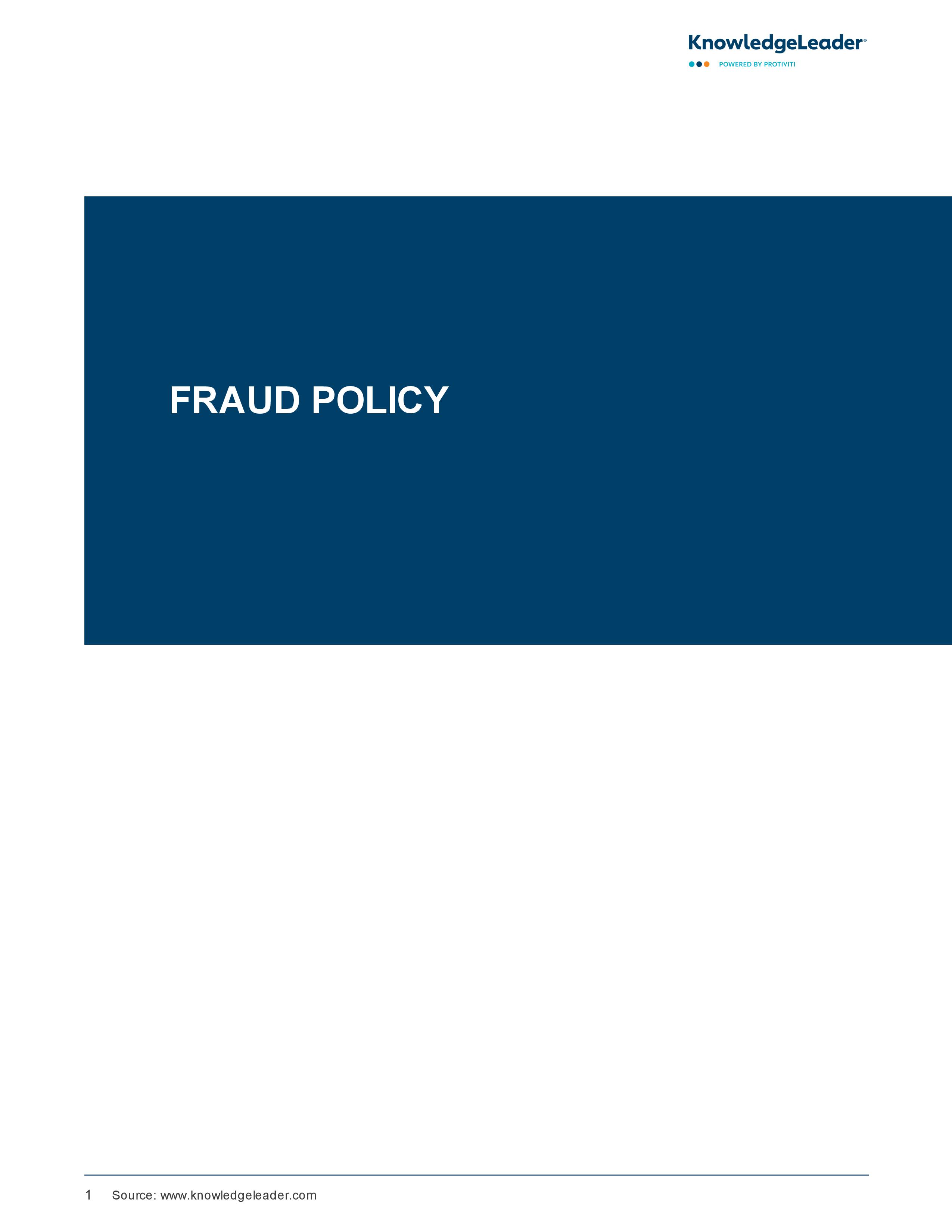Fraud Policy

Preventing, Detecting and Managing Fraud With Integrity and Accountability
Our Fraud Policy provides a detailed framework for preventing, detecting and responding to fraudulent activities within an organization. This tool underscores the company's commitment to transparency, accountability and integrity while fostering a culture of honesty and intolerance toward fraud and corruption. This policy defines fraud and corruption, offering examples such as financial misappropriation, misuse of company resources and unethical behavior. It establishes procedures for reporting suspicions, ensuring that employees and external parties can voice concerns through secure channels. It emphasizes confidentiality with measures in place to protect whistleblowers and prevent reputational harm to individuals wrongly accused. This document also outlines the responsibilities of various parties, including the HR and legal director, audit committee, and board of directors, in investigating and addressing fraud.
Additionally, the policy includes provisions for securing evidence, conducting thorough investigations, and initiating disciplinary or legal actions where necessary. It mandates regular reviews and updates to ensure the effectiveness of the fraud response plan. It analyzes the lessons learned from past incidents to strengthen preventive measures and improve internal controls. It applies globally across all group companies, emphasizing consistency and adherence to best practices. By detailing the processes for managing suspected fraud and safeguarding organizational integrity, it aims to deter fraudulent acts, recover losses, and maintain a trustworthy environment for stakeholders.
Sample procedures include:
- Investigate suspected fraud, establish facts and gather evidence in an agreed manner/format.
- Assign responsibility for investigating the incident.
- Investigate the circumstances and ensure that evidence is secured to succeed in any subsequent internal disciplinary, civil or criminal action.
- Establish circumstances under which external specialists should be involved.